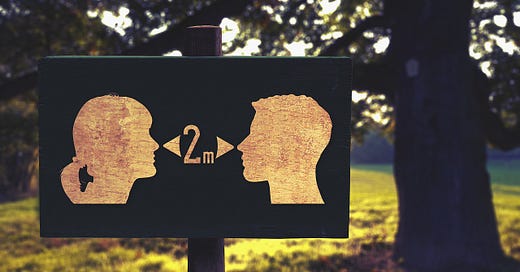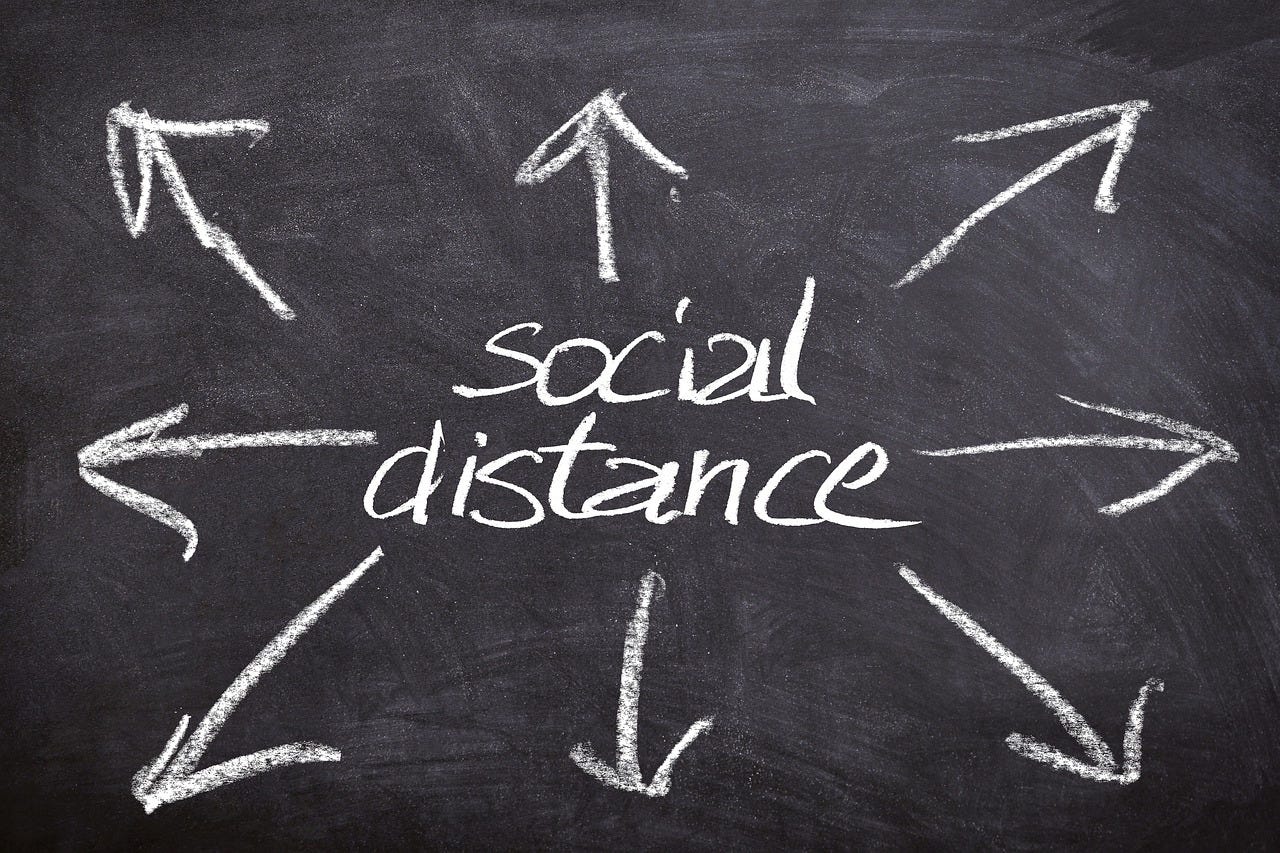I almost didn’t send this out. I’m exhausted, I haven’t been sleeping well, and I figured I’d just skip an issue. After all, I warned you it might—it will—happen, but not this time, apparently. Why? I simply had nothing better to do.
Only, that’s not true. I should be working on an article I’ve been commissioned to write about digital legislative frameworks (re Google, Facebook, et al) in Australia and the European Union, as well as a similar bill that will likely be tabled here in Canada this spring.
I may link to it on Friday—that is, of course, if I actually have a newsletter to send on Friday.
Let’s go mental.
In the Media
How are you doing?
More specifically, how are you doing now that COVID-19 has been with us for nearly a year?
Early on in the pandemic, during the first lockdown, I flourished. If I’m honest with myself, it was because the suffering around me seemed to bring the entire world down to my level. I also felt no pressure to excel at anything, to be productive, to socialize. It was invigorating.
Lately, not so much. This second, longer lockdown has taken its toll, and it hasn’t helped that it’s coincided with winter. I hate winter. HATE it. I have a not-so-secret goal of living and working abroad for the rest of my Januarys and Februarys.
Anyway, the mental strain of COVID-19 and its accompanying lockdowns is likely to be with us for some time, and this issue’s feature article examines what that will look like. Folks, it’s not good.
Not surprisingly, a lot of new anxieties have to do with finances. Millions of people worldwide are newly unemployed or underemployed, and many working in jobs deemed “essential” have reached a breaking point, what with working full-time for poverty wages. Financial stress has obviously exacerbated existing mental illnesses.
As the article in Australian outlet The Conversation points out, suicide rates can be expected to increase 1% for each additional 1% increase in the unemployment rate during economic downturns. An obvious remedy for this problem is Universal Basic Income (UBI)—something Canada’s CERB and subsequent CRB have essentially provided the last 12 months. In addition to numerous social and, yes, financial benefits inherent in UBI, it would literally save lives. Lots of them. I’m not going to get into it here, but if you’re interested I’ll point you to a resource that describes how UBI, beyond making life livable, is actually good for the economy. Oh, and a basic tenet of socialism is that some version of UBI should have accompanied increases in automation over the last 170 years. We have some catching up to do.
Unemployment and financial stress have exacerbated psychological problems during the pandemic. The major concern is that the increase in mental health problems will persist for years because of the economic downturn facing most nations.
Beyond finances is human capital. We’ve established some very antisocial and anti-personal habits in the last year. Of course, we didn’t have a choice, but our individual and collective health relies on the reestablishment of social networks post-pandemic. Additionally, countless people will have experienced the COVID-19 lockdowns as trauma, and our current mental health structures simply won’t be able to bear the increase in demand. Hell, it didn’t bear the pre-pandemic demand.
The article describes a few things researchers are looking at regarding pandemic-caused or exacerbated mental illnesses and provide one or two prospective treatment pathways for when we get out of this.
As always, I’d prefer that you read the article instead of simply taking it from me, so I won’t give everything away. Read it. Google more articles about it. This is very, very serious. Exactly zero of us stand to be vaccinated against the mental ills of 2020 and 2021.
Oh, and I should mention that I’ve included some more articles in a new section below. One looks at depression and weight fluctuations and the other concerns post-natal depression.
Excerpt—So Old a Pain: Depression in Fragments
What is going on here?
I hate to break it to you, but I’m under no obligation to say. I don’t have to tell you anything. Not about my present situation, not about my past, not about what I project for myself in the future, or where I project myself, my hopes and aspirations, if I have any of those, or my fears and anxieties, should I be afraid or uneasy, not any sense of foreboding about what is to come for me, assuming I have such a sense, not any interpretation of my life until this point and the situation I presenting find myself in. I owe you none of that. You can draw your own conclusions based on what I tell you, but as the little control I do, in fact, have I can exercise in the telling, I intend to take full advantage of that control. We are not on the same side.
I could tell you anything and you’d have to consider it. You wouldn’t have to believe it, but you’d have to consider it, to at least incorporate it into the sum of what I’m telling you, to reserve some space for it in the process of drawing a conclusion, to assign it legitimacy, however perverse.
I am a walnut. Am I not? I’m telling you that I am. And you’ve already furthered your consideration of me by the mere fact that I’ve told you that I am a walnut. You may not believe that I am a walnut, but the fact that I’ve told you that I am has influenced your consideration. Control. It’s the little control I do, in fact, have. And you can’t take it from me. No one can. It’s the one thing no one can take.
What is going on here?
What is happening?
Video
Mindful
Apologies, but I don’t have a lot for this space this time around. It’ll happen from time to time, but I’ve already told you that. I trust you’ll understand. I’m tired. I’m trying to get another book off the ground, and the stress and expectation of it all is keeping me up at night. Like I told someone the other day—the hardest part of writing…is…the waiting. And the sleeping, apparently.
Finally, a big thank-you to those who supported the newsletter through the Buy Me a Coffee button below. It’s by no means necessary—at all—but I want to recognize those who did. You know who you are.
Network
“A Guide to Using Social Media as a Side Hustler”—by Briana Stryker







